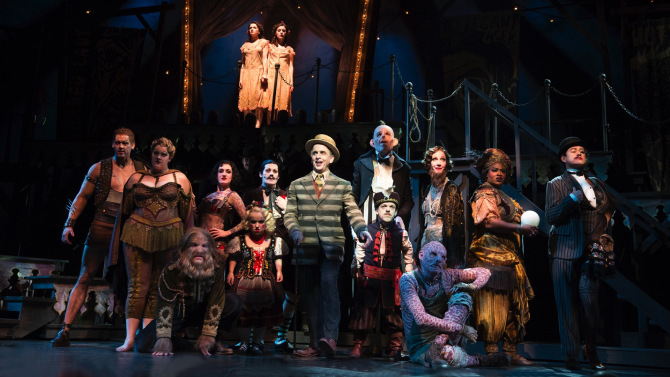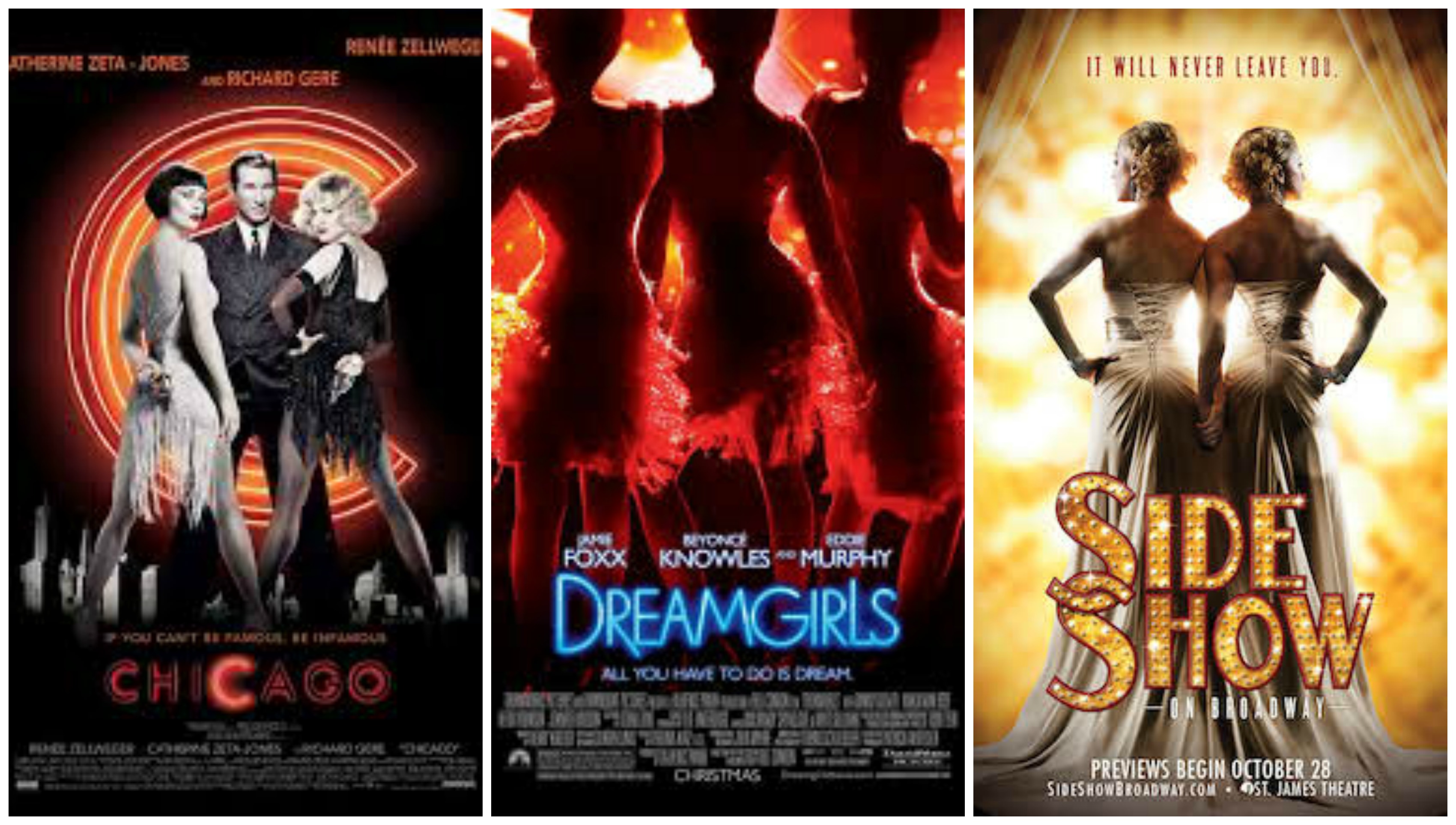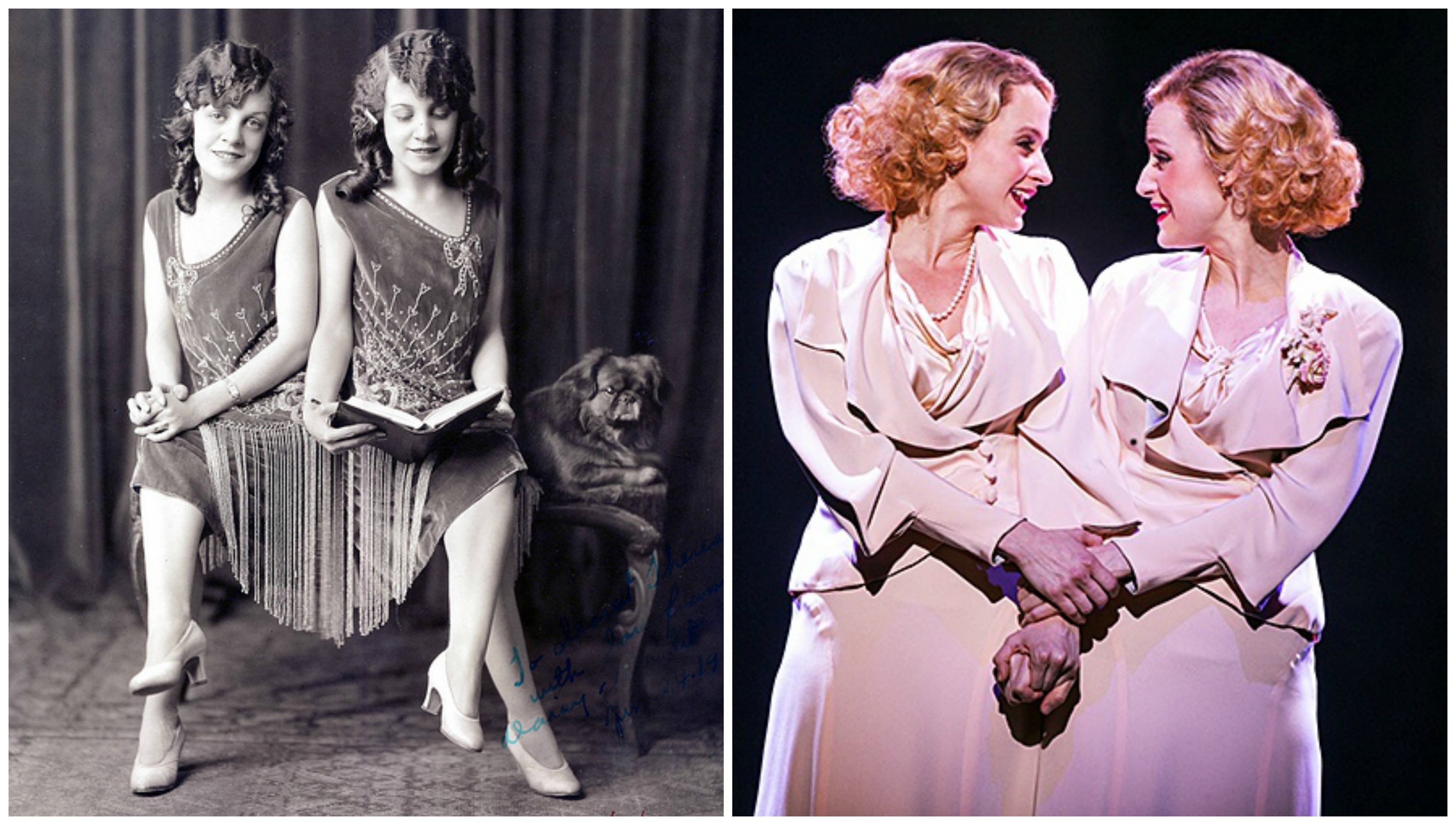
Jose here. Last week as I sat in the audience for Side Show on Broadway, I was suddenly struck by the fact that beyond the show’s obvious brilliance and many charms, I was also witnessing the apotheosis of Bill Condon as a true auteur of screen and stage. Now bear with me as I make my points...
Condon is perhaps best known for his work as a screenwriter, his adaptation of Chicago having earned him an Academy Award nomination, and his meticulous work in Gods and Monsters having won him an Oscar for the Best Adapted Screenplay of 1998. Some of his other notable projects have included writing and directing Kinsey, Dreamgirls and also the last two installments of The Twilight Saga. If you take all of his important works and analyze them, it’s clear that in bringing Side Show back to Broadway, he has finally found the one project where he finds all of his obsessions unified.
Side Show is very loosely based on the real life story of the Hilton twins, Violet (Erin Davie) and Daisy (Emily Padgett) who were born conjoined, and spent the first part of their life as freak show attractions, until they caught the eye of an ambitious impresario who turned them into bona fide vaudeville stars. Condon reworked the show to best fit his artistic obsessions, most obviously in how he transformed the show from an ode to “embracing the freak in all of us”, into making us love Daisy and Violet, even if we don’t personally feel like freaks ourselves. Condon’s version is less romantic and more in tune with the intolerance of our times and how universal empathy isn’t as easy to achieve as popular entertainment would prefer to have us think.

This gives the show an edge, that makes Daisy and Violet’s struggles much more heartbreaking and urgent. Like Velma Kelly and Roxy Hart from Chicago, the sisters are forced to develop team skills that will allow them to survive and pursue a single dream that will by default permit them to seek individual happiness. Daisy and Violet as an artistic duo, are also an exaggerated version of Deena, Effie and Lorrell of Dreamgirls (it’s essential to point out that the music to both Side Show and Dreamgirls was written by Henry Krieger), who equally must overcome social prejudice to prove their worth, in a world that accepts them reluctantly. With Side Show being set in the 1930s, we can say that Condon has chronicled an evolution of the girl-band from the early 1920s to the late 1960s.
With Daisy and Violet, Condon also explores the “unique” sexuality that fascinated the protagonist of Kinsey. The show’s tongue-in-cheek “One Plus One Equals Three” has a male character wondering how his wedding night will be with one of the sisters, if the other one is also going to be there. Less abrasive than Cabaret’s Two Ladies, the song unequivocally is meant to make audience members try to open their minds about sexuality and realize that there is much more than meets the eye when it comes to the vast spectrum of human sexuality. Condon equally turns his attention to the latent homosexuality of one of the characters, which in the original version was plainly “a coward”. In this update, his internal struggles are so heartbreaking that they could easily warrant a musical of their own. The real life Hilton sisters and their Broadway counterparts.
The real life Hilton sisters and their Broadway counterparts.
The element that has been most noted by Side Show purists is the addition of Tod Browning as a key character in the show. In 1932 Browning gave the Hilton sisters a role in his iconic Freaks, which remains one of the most controversial motion pictures in history. His part in the Side Show update helps unify a thesis about Condon’s favorite themes, because his love for classic Hollywood horror was obvious in his James Whale biopic Gods and Monsters, and to a degree it seems to have been what drew him to the Twilight series. He was quoted once comparing Robert Pattinson's Edward Cullen to the classic Universal studio monsters, going as far as saying "we've always had a complicated relationship toward monsters. Don't you feel like in every Dracula movie, you're sort of wanting him to get away with it?"
Browning’s part in the show also reminds us of the compromises Velma, Roxy, Deena, Effie, Lorrell and even Dr. Kinsey’s wife Clara, had to make in order to fulfill their professional dreams. It seems as if Condon’s work so far has been trying to point out the importance of our professional legacy and how our personal issues and romances should never be thought of as nothing other than a sideshow attraction.
Side Show plays on Broadway through January 4.